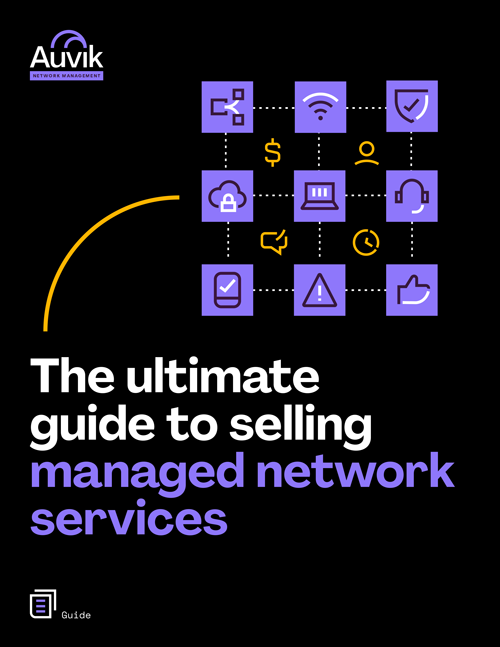How well does your MSP team communicate? For most MSPs, communication between members of a service desk team relies on the updates that are typed into a ticket, the casual conversations between taking support calls, and perhaps the occasional tap on the shoulder between engineers for specific issues. While this communication is good, the challenge is that there’s wealth of knowledge and real-time information that isn’t communicated between your team—and your clients are suffering as a result. One way to ensure this information is shared effectively is through a daily huddle agenda.
What is a daily huddle meeting?
I first became aware of the concept of daily huddle meetings after reading Verne Harnish’s celebrated book Mastering the Rockefeller Habits.
Harnish says that “to make more than just a lot of noise in your business, you’ve got to have a rhythm.” At the heart of this rhythm is a daily meeting with a specific agenda.
Harnish refers to this meeting as a huddle, similarly that an American football team will briefly huddle together before tackling a big game play.
Your daily huddle should be something that’s scheduled and has a specific agenda. When I say scheduled, I don’t mean “We’ll try to get together at 9 a.m. each day.” That’s a hope, not a scheduled meeting.
A scheduled meeting is something that’s on the calendar, mandatory to attend, and treated as an important part of the day—not lip-service to the idea of team building.
The benefits of a daily huddle agenda
At this point, I hear a lot of MSPs tell me it would be “impossible” to find time for their service desk team to get together. Some engineers are in the office. Some are on client sites. All of them are too busy actually doing their jobs to spend any time in meetings.
Normally I’d agree. Meetings can be a colossal waste of time. However, a famous quote (often incorrectly attributed to Abraham Lincoln) springs to mind here: “Give me six hours to chop down a tree and I will spend the first four sharpening the axe.”
The daily huddle will save you time.
The daily huddle is an investment of time to enable your team to support clients more effectively. It’s not a talking shop. It’s a short (think 5 minutes) gathering of engineers with a specific purpose (the agenda).
The benefits of a daily huddle are that it enables your entire team to:
- Be aware of what their colleagues are working on (rather than hope they chat about this casually)
- Share what they’re working on
- Share what they’ve learned in the past 24 hours (rather than simply hope this gets documented in a knowledge base)
- Ask for help (rather than wait for a busy colleague to have a “spare moment”)
- Offer help and support for their colleagues
- Build a stronger personal and professional relationship with their colleagues
The bottom line is that a daily huddle should help your team get things done more efficiently, more effectively, and more quickly.
You’ll solve problems more easily, and your service desk team will work together as an actual team, not simply a collection of individuals working on their own priorities.
If your service desk team can’t make five minutes to do that each day, then you’ve got a more serious problem.
The structure of a daily huddle meeting
Huddles are best done in person, but if your staff are off-site, they can use their cellphone to dial in and join the meeting. Again, if your engineers can’t spare five minutes in a day, then you have a massive internal issue and need to seriously reconsider how much work your engineers are taking on. Making time is typically a choice.
To ensure the huddle sticks to its allotted time, I recommend you hold the meeting standing up. Nothing motivates people to be concise more than being on their feet.
The agenda of a daily huddle should be the same every day. It consists of three items:
- What’s up?
- Daily metrics
- Where are you stuck?
Each attendee should spend a few seconds (think less than 30) to share what they’ve got going on at the moment. This is really valuable becomes it enables your team to spot opportunities, highlight conflicts, and serve your clients better.
The daily metrics portion should help the team keep a finger on the pulse of how they’re performing. Key performance indicators are different for every business, but for a service desk, I recommend focusing on open tickets, the average time to resolution, and tickets that have exceeded service level agreement or goals.
Finally, asking each member of the team where they’re stuck is a powerful way to bring your team together to handle challenges as a group. All too often, engineers will work in isolation rather than ask for help. Working as a team builds camaraderie and saves your business money.
Remember to keep the huddle on track. The problem-solving stage should be brief. No in-depth explanations are required (or wanted). Instead, focus on communicating information.
Daily huddles for other departments
Of course, the keen minds reading this will be asking, “if a daily huddle works meeting for a service desk team, does it work for other teams too?”
Absolutely! I recommend a daily huddle agenda for all teams within an MSP business, from HR to finance to project management (especially project management).
The executive or senior management team within an MSP can also hugely benefit from a daily huddle. It helps uncover true priorities, rather than having senior staff working in silos.
Of course, the rhythm within your own business might lend itself to a weekly huddle for a certain department. For executives, perhaps it’s a brief daily huddle plus a longer, more in-depth huddle once a month to tackle bigger strategy challenges.
Use a huddle however it benefits your team and your business. But don’t lose sight of the benefits of the huddle. They aren’t meetings for the sake of meetings. They’re scheduled events with an agenda and a specific goal: to share information and bring your team closer together.
The best five minutes you’ll ever invest
Every (and I do mean every) successful IT business I’ve ever worked with has had some form of daily huddle built into its routine.
The MSP businesses that are growing fastest do so because they realize they need to have a rhythm to their growth, and a daily huddle helps provide this rhythm.
Don’t fall into the trap of being busy fools, making excuses for why you can’t spare five minutes in a day. The daily huddle may well be the best five minutes you ever invest.
Your Guide to Selling Managed Network Services
Get templates for network assessment reports, presentations, pricing & more—designed just for MSPs.



